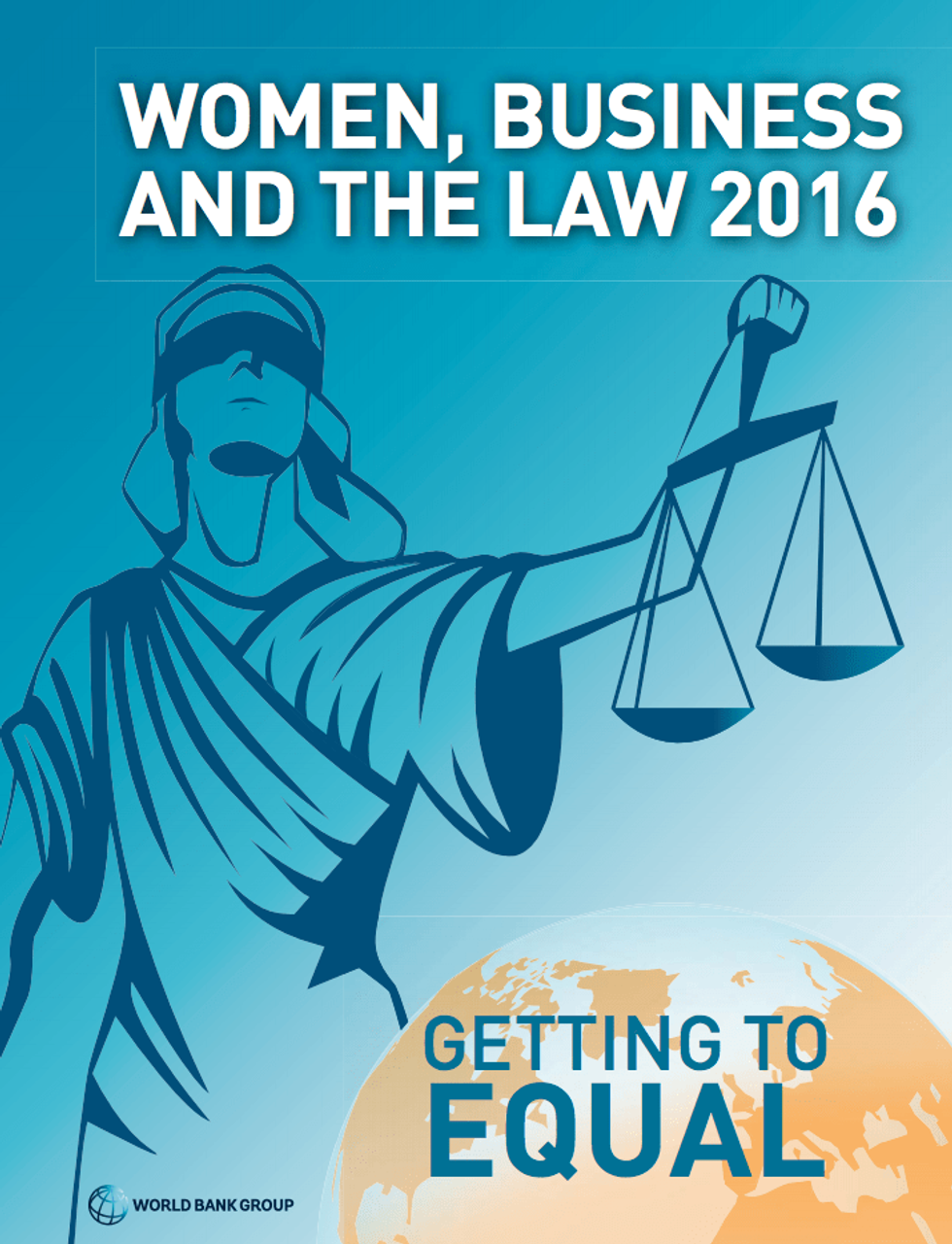There are so many reasons why there are fewer women than men in the workforce (and if you want to look at workplace gender disparity in the United States relative to the rest of the world, then read my post from earlier in the week). The reasons we hear the most in the US are often the most insulting ones to women. How many times has someone shrugged and told you that there are fewer women working at the top of companies than men because "women drop out"?
Blaming women for not conforming to workplaces that were never built for them in the first place is an easy out for anyone who refuses to look at the structural barriers women face - especially when major barriers are written into the laws of your land.
The World Bank's Women, Business, and the Law report lists 943 gender-based disparities that prohibit women from some type of economic participation. In France, a first-world country, women are not allowed to work in professions where they would need to lift about twenty-five pounds. Yes, twenty-five pounds.
You can read the entire Women, Business, and the Law report here and dig into how each country discriminates against women. As Rachel Vogelstein and Gayle Tzemach Lemmon write in their excellent Building Inclusive Economies report:
"an overwhelming 90 percent of the 173 economies surveyed [by the World Bank] have at least one legal policy that inhibits women's economic participation...
...One hundred economies around the world limit the occupations and sectors in which women can be employed. These limits include restrictions on the hours women are permitted to work and the types of jobs they are allowed to hold. Not only do these barriers reduce the pool of qualified candidates but they also contribute to the confinement of women to low-paying jobs, as many of the more gender regulated industries—such as mining and manufacturing—are relatively higher paying."
Scroll to page 236 to see the specific section on the U.S. You'll see that gender-based disparities in law preventing women from certain jobs in US aren't as prevalent as in Saudi Arabia, for example, but we do lack legal mandates around paid leave that directly affect women's participation in the workforce.
"943 gender-based disparities under the law still inhibit women’s economic opportunity worldwide" - CFR





